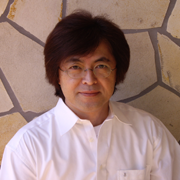Tafazzin Knockdown in Murine Mesenchymal Stem Cells Enhances the Tafazzin Knockdown Mediated Elevation in Interleukin-10 Secretion from Murine B Lymphocytes
Author(s): Hana M. Zegallai, Ejlal Abu-El-Rub, and Grant M. Hatch
Barth Syndrome is a rare X-linked genetic disorder caused by mutations in the TAFAZZIN gene. We recently demonstrated that tafazzin (Taz) protein deficiency in murine mesenchymal stems (MSCs) reduces immune function of activated wild type (WT) B lymphocytes. Interleukin-10 (IL-10) is a key anti-inflammatory cytokine capable of exerting immunosuppressive effects on myeloid cells. Here we examined if Taz deficiency in murine MSCs altered proliferation and IL-10 production in Taz deficient lipopolysaccharide (LPS)-activated murine B lymphocytes. Bone marrow MSCs and splenic B lymphocytes were isolated from WT or Taz knockdown (TazKD) mice. WT or Taz deficient MSCs were co-cultured with either LPS-activated WT or LPS-activated Taz deficient B lymphocytes for 24 h and B cell proliferation and IL-10 production determined. Taz deficient MSCs exhibited increased phosphatidylinositol-3-kinase (PI3K) mRNA expression compared to WT MSCs indicative of enhanced immunosuppression. Co-culture of Taz deficient MSCs with Taz deficient LPS-activated B cells resulted in a greater reduction in proliferation of B cells compared to Taz deficient MSCs co-cultured with LPS-activated WT B cells. In addition, co-culture of Taz deficient MSCs with Taz deficient LPS-activated B cells resulted in an enhanced production of IL-10 compared to Taz deficient MSCs co-cultured with LPS-activated WT B cells. Thus, Taz deficiency in murine MSCs potentiates the Taz knockdown-mediated elevation in IL-10 secretion from LPS-activated Taz knockdown B lymphocytes. These data suggest that Taz deficient MSCs may modulate the activity of other Taz deficient immune cells potentially promoting an enhanced immunosuppressive state.


 Impact Factor: * 3.5
Impact Factor: * 3.5 Acceptance Rate: 71.36%
Acceptance Rate: 71.36%  Time to first decision: 10.4 days
Time to first decision: 10.4 days  Time from article received to acceptance: 2-3 weeks
Time from article received to acceptance: 2-3 weeks 
